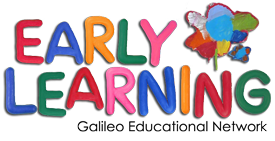
Dr. Anna Kirova is an elementary education professor at the University of Alberta. Her research interests include the social-emotional intelligence of young children, early mathematical thinking, the use of technology. She also studies peer relationships and loneliness experienced by immigrant children. While attending the University of Sofia-Bulgaria, Dr. Kirova’s doctoral dissertation on the role of toys in the development of a child’s social skills landed her a position with the Toy Institute in Bulgaria. There, she worked with designers and engineers, designing toys for children up to 12 years of age. Upon her family’s arrival in Canada, Dr. Kirova experienced what would become another research direction – the cultural isolation and loneliness experienced by young immigrant children. Inspired by what her young son was going through, Dr. Kirova embarked on a second dissertation at the University of Alberta.
Working with Young Children who are Learning English as a New Language
Dachyshyn, D., Kirova, A., Paradis, J. (2009). Working with Young Children who are Learning English as a New Language. Alberta Education Early Learning Branch. Edmonton, Alberta.
Promoting the pursuit of intercultural competence among pre-service teachers
Kirova, A., Cooley, M., Dunn, W. E., Ogilvie, G. (2007). Promoting the pursuit of intercultural competence among pre-service teachers. University of Alberta Research Team. This study investigates the experiences of a group of teacher educators working to promote intercultural awareness among pre-service teachers enrolled in their subject-area curriculum courses. The goal of the study is to allow for greater equality and social inclusion for immigrant children and their families.
Lonely or Bored: Children’s lived Experiences reveal the difference
Kirova, Anna. (2004). Lonely or Bored: Children’s lived Experiences reveal the difference. Interchange, Vol. 35/2 Kluwer Academic Publishers. Despite a growing body of research, the link between loneliness and boredom in children hasn’t been sufficiently addressed. In this article, Dr. Kirova recounts conversations with children, and her own experiences, along with research on the topic, discovering that both boredom and loneliness are seen as important pedagogical ingredients in the formation of a child’s inner self.
Assessing Children's Experiences of Loneliness Through Conversations
Kirova, Anna. (2003). Assessing Children’s Experiences of Loneliness Through Conversations. Field Methods, Vol.15, No.1. Sage Publications. The question of how to talk to children about loneliness hasn’t been fully addressed. In this article, Dr. Kirova suggests a game-playing approach to initiating conversations with children about their experiences. The resulting interviews provide a deeper understanding of the difference between loneliness and aloneness, solitude and boredom.
Learning to Guide Preschool Children's Mathematical Understanding: A Teacher's Professional Growth
Kirova, A., Bhargava, A. (2002). Learning to Guide Preschool Children’s Mathematical Understanding: A Teacher’s Professional Growth. Early Childhood Research and Practice, Vol. 4, No. 1. Champaign, Illinois.
Loneliness in Immigrant Children
Kirova, Anna. (2001). Loneliness in Immigrant Children. Childhood Education, Vol.77. This article delves into the psyche of an immigrant child, which Dr. Kirova accomplishes through personal experience and her research on the topic. The impact of immigration on a child’s self esteem, socialization and learning in school are covered.Preparing teachers for today’s world requires a close look at what it means to teach and learn in increasingly networked, information-rich, digital classrooms. This framework, published by the Canadian Education Association, puts forward a set of five principles to guide educators in teaching for today’s realities. The five core principles provide a framework for effective teaching:
- Effective teaching practice begins with the thoughtful and intentional design of learning that engages students intellectually and academically.
- The work that students are asked to undertake is worthy of their time and attention, is personally relevant, and deeply connected to the world in which they live.
- Assessment practices are clearly focused on improving student learning and guiding teaching decisions.
- Teachers foster a variety of interdependent relationships in classrooms that promote learning and create a strong culture around learning.
- Teachers improve their practice in the company of others.
Implicit in these five core principles is the understanding technology is an integral feature of todays learning environments and is therefore inextricably woven into the teaching and learning fabric of each setting.
Learning the Ropes, Resisting the Rules: Immigrant Children’s Representation of the Lunchtime Routine through Fotonovella
Learning the Ropes, Resisting the Rules: Immigrant Children’s Representation of the Lunchtime Routine through Fotonovella. Anna Kirova, Fauza Mohamed, Michael Emme. For a child who has immigrated to Canada, the school routine can be seen as confusing, even traumatizing. This article is based on an in-school study where immigrant students were given the opportunity to interpret school life through a fotonovella – a small publication similar to a comic book, with photographs instead of illustrations. The project allowed the authors to better understand how immigrant children make sense of school rules and procedures, and how they interpret, comply with or resist them. The students, in turn, were able to better assert their own position in relation to school routines and school life in general.

